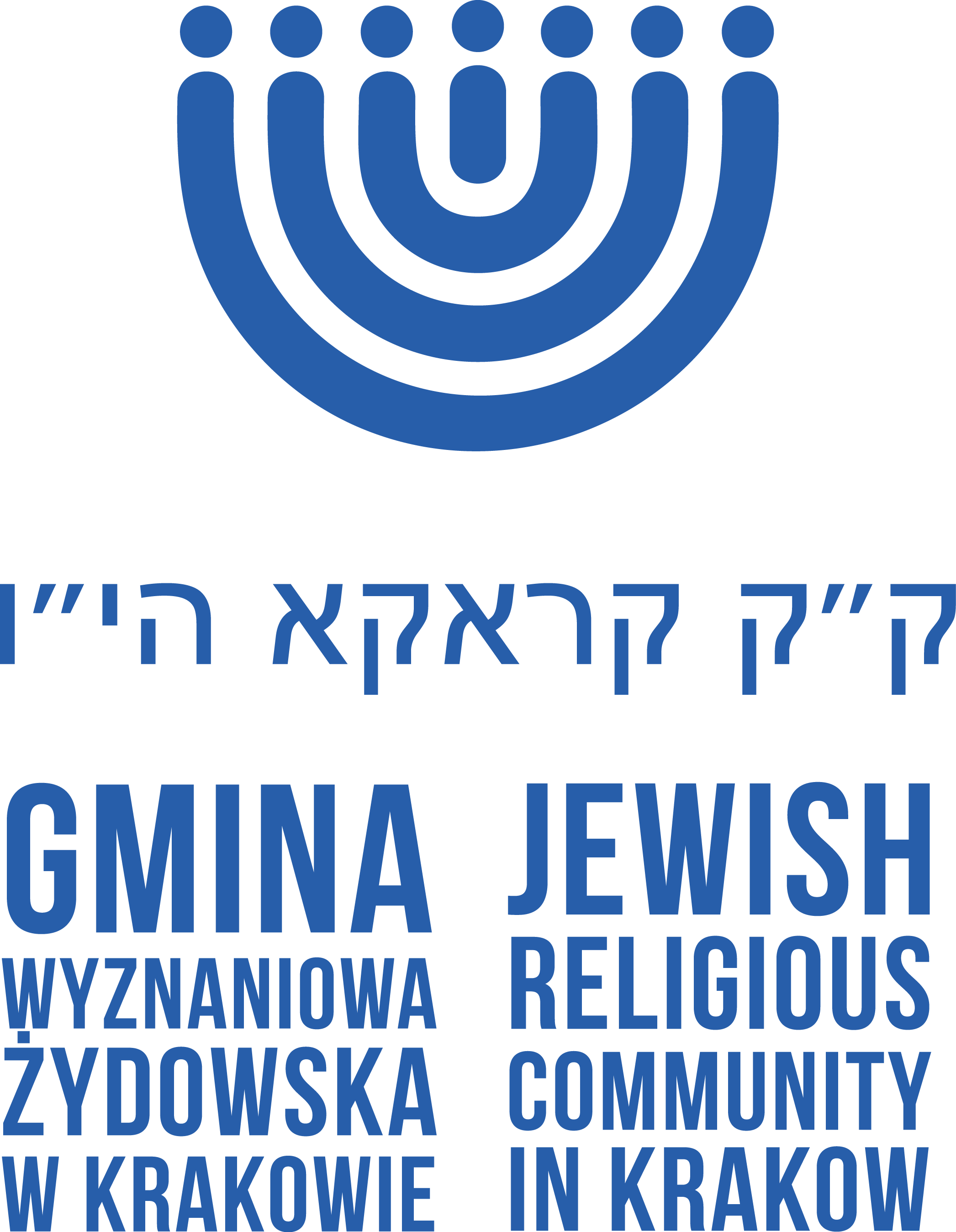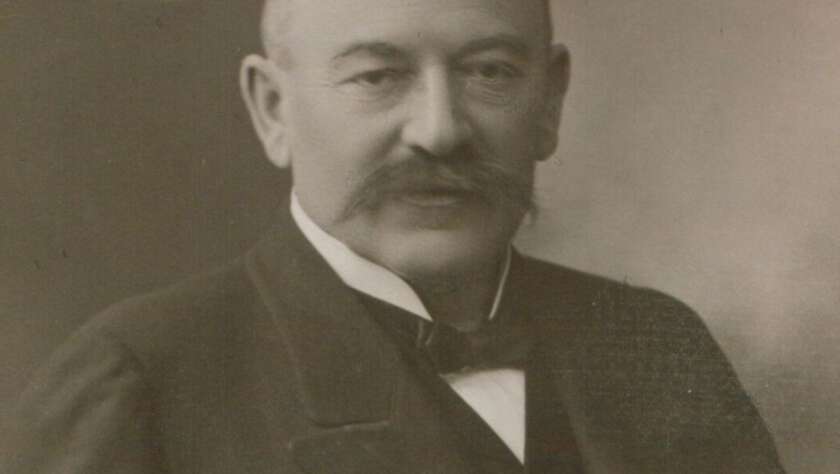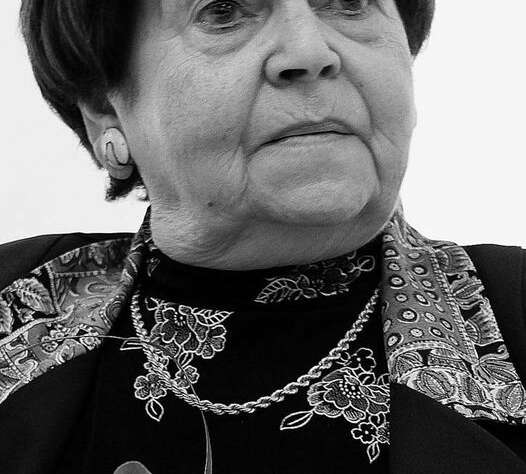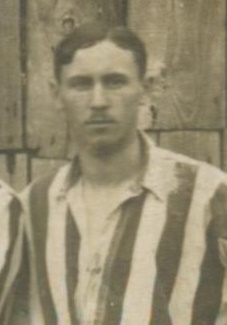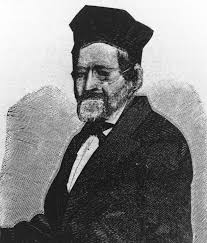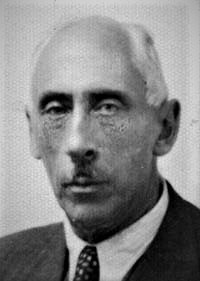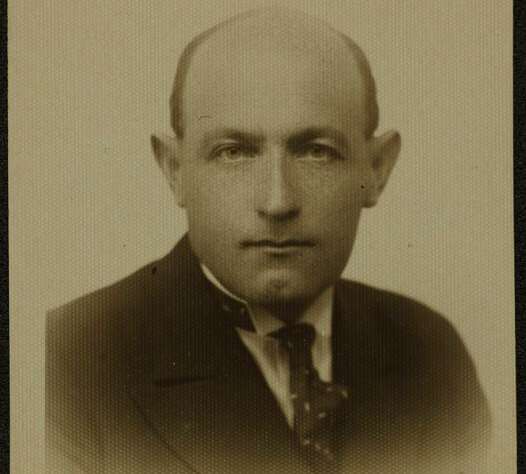Abraham Ozjasz Thon – a rabbi, politician, activist, publicist, speaker and most importantly, a Zionist, was born on 13th February 1870 in Lviv.Thon came from a poor orthodox family. From a very young age he stood out with his intelligence and hard work. Thon was the son of a well-known Talmudist – Uri Wolf Salat. At the age of 17, Abraham Ozjasz Thon received an unofficial rabbi title from his father. Between 1888–1891 he was a student of the 2nd National Gymnasium in Lviv. He continued his education at the Frederick William University in Berlin, in the Department of Philosophy. Thon achieved a PhD title in Philosophy in 1895. Concurrently, he was studying at the Hochschule für die Wissenschaft des Judentums. It is very challenging to describe…
Mojżesz Deutscher, a senator of the Republic of Poland between 1922-1927, a son of Saul, was born in Cracow on 13th February 1878. Deutscher was one of the founders of Stronnictwo Żydów Niezawisłych (A Party of Independent Jews). Since 1919, he was also a member of The Orthodox Agudas Israel Organisation – a local executive member in Cracow and a central executive member in Warsaw. Deutscher was a publisher of the ”Krakauer Tagblatt” and ”Der Jud” newspapers, an editor at a weekly magazine – ”Das Wochenblatt”. What is more, Deutscher owned a printing house in Cracow and was a director of both Konsum ”Israel” and a Warsaw editorial copartnership, „Israel”. One of the most active members of the Jewish Religious Community in Cracow. Thanks to his efforts,…
Bernard Liban was born to Jude and Rachela, neé Bramberg on 9th February 1848 in Podgórze (currently one of Cracow’s districts). He graduated from the Real School at the University of Technology in Cracow. While being a student, Liban took part in the January Uprising which resulted in serious consequences, including the expulsion from school. In 1880’s he ran a factory „Bernard Liban – Wyrób Gipsu Wszelkiego Rodzaju” (”Bernard Liban – Making cement of all kind” ), a factory of the Portland Cement in Bonarka. In 1903, Liban set up a factory of Chemical Products in Borek Fałęcki, which was turned into one of the first joint-stock companies in the Cracow area nine years later. At nearly the same time, he set up the First Galician Soda…
Stella Müller-Madej, the daughter of Zygmunt and Berta, neé Bleiweis, was born on 5th February 1930 in Cracow, in a well-off, assymilated family. One of Oscar Schindler’s survivors, the author of a harrowing memoir „Oczami dziecka” (Cracow, 1991) / („A girl from the Schindler’s list”) translated into nine languages. In 1941, Müller-Madej got to Cracow’s ghetto, followed by a camp in Płaszów afterwards. She was transported to KL Auschwitz in 1944, where, as a Jewish woman, was sentenced to death. However, thanks to her uncle’s intercession, Müller-Madej was added to the so-called ”Schindler’s list”. Together with other prisoners from the list, she was transported to the Brunnlitz factory in Morawy where she lived to see the liberation day in 1945. In the USA, Müller-Madej’s memoir describing the…
Zygmunt Alfus (Szymon Alfus) – a football player at Cracovia football club and Makkabi Kraków, a referee, a sports activist, a craftsman as well as an official, was born on 3rd February 1901. Before the outbreak of WWII, Alfus was an activist at Hakoahu Bielsko-Biała. After WWII, he joined the Salesian Football Association in Katowice. Zygmunt Alfus was a Board Member of the Polish Football Association (PZPN) where he held the position of a Deputy Secretary, followed by the Association Captain position as well being the coach of the national team during five official international games. Alfus was removed from the Polish sports structures due to political reasons (he was a Home Army member during WWII). In 1956 Zygmunt Alfus worked actively to reactivate the Salesian Football…
Izaak Mieses (born in 1802 in Lviv), passed away on 3rd February 1883 in Toruń. For many years he was linked with Cracow (from 1830’s until 1863, when Mieses left to Toruń). Associated with progressive circles, a prominent expert on the history of Kabbalah, European philosophy, a supporter of Haskalah. Following Alicja Maślak-Maciejewska’s monograph regarding Cracow’s progressive circles, in 1861, it was necessary to employ a permanent preacher, when the construction of a progressive synagogue was at the finishing line. Most importantly however, it was crucial to invite someone to give the innauguration sermon. Even though Izaak Mieses dealt with trade and wasn’t a professional preacher, he was the one who was chosen. He did have letters of recommendation from Solomon Judah Löb HaKohen Rapoport, known as Shir, yet Mieses…
1st February marks the birth date of Adolf Siódmiak. Born in 1879, in Cracow, Siódmiak was an architect who graduated from the Vienna Technical University in the Faculty of Architecture. His most notable projects include: the orphanage building for Jewish children at Kołłątaja 13 in Tarnów, „Dom Wenecki” (”The Vienna House”) on the Main Market Square 11, a residential house for the staff of the Jewish cemetery at Jerozolimska 14, a funeral parlour at the Jewish cemetery at Jerozolimska 14, mansions at Chłopickiego 16, 3, Misiołka 3, Litewska 13 and Kościelna 5, A Jewish Dormitory for the Association of the Jagiellonian University Students ”Ognisko” at Przemysłowa 3 (designed together with Tobiasz Wexner), tenement houses at Krasińskiego 10 and Morawskiego 10 (designed together with Henryk Ritterman), the buildings…
Wiktor Rudolf Ormicki (Nussbaum), the son of Fryderyk Wilhelm, a lawyer and a rail official and Salomea, neé Amenis – a Geography lecturer at the Jagiellonian University, was born on 1st February 1898 in Staroniwa, one of Rzeszów’s discticts. After graduating from grammar school and completing military service in the Austrian army, Nussbaum started studying at the Law Department of the Jagiellonian University. In the face of the Polish – Soviet war, he ceased his education and joined the Polish Army. After coming back from the army in 1922, Nusbaum resumed his education, this time studying Geography in the Department of Philosophy at the Jagiellonian University. The surname-change decision that he made in 1924 was a huge milestone in his life. He was no longer Nussbaum. He…
Edwin Opoczyński, the son of Aleksander Biberstein, a specialist in Orthopaedics and Surgery, was born on 25th January 1918 in Cracow. Edwin Opoczyński got his education in Cracow where he passed the maturity exam and subsequently, started studying Medicine at the Jagiellonian University. On the day of WWII outbreak, Opoczyński was a 3rd year Medicine student who also worked as a volunteer at the Internal Diseases Ward of the Gabriel Narutowicz Hospital in Cracow. After German invasion in September 1939, the continuation of his volunteer work at the hospital became impossible. Thus, Opoczyński moved to the Jewish Hospital located at Skawińska Street. After establishing a getto, the medical facility was included within its area. After closing the Cracow’s getto in March 1943, Opoczyński was moved to the…
18 January 1892 marks the birth of Fryderyk Tadanier. Born in Kamionka Strumiłowa, Tadanir was a modernist architect. His works include the Municipal Savings Bank, (pl. Szczepański 5, designed with Stefan Strojek), the District Department on the corner of Słowackiego 18a and Łobzowska 44 (also together with Stefan Strojek), the reconstruction of the Main Post Office at Wielopole 2, the Regional Intermunicipal Association of Social Care at Praska, the Ćmielów Factory house at Biskupia 11 and Sereno Fenn 2, the reconstruction of the Theatre Bagatela, the Railway Station Post Office building in Kraków and he Social Insurance Institution (ZUS) at Pędzichów 27. Fryderyk Tadanier was a graduate of the the faculty of Civil Engineering in the Lvov Technical University. However, Tadanir decided to link his professional life…
